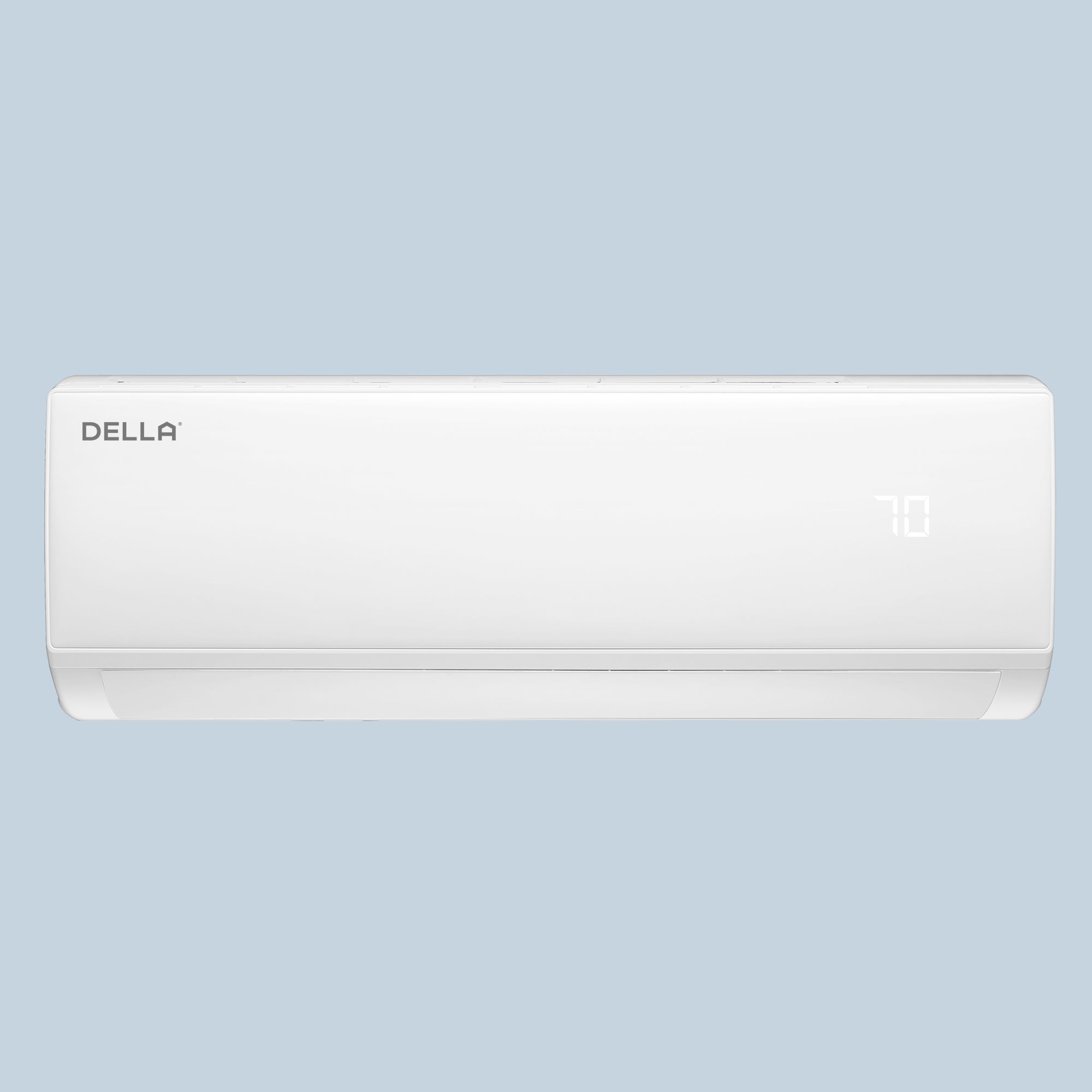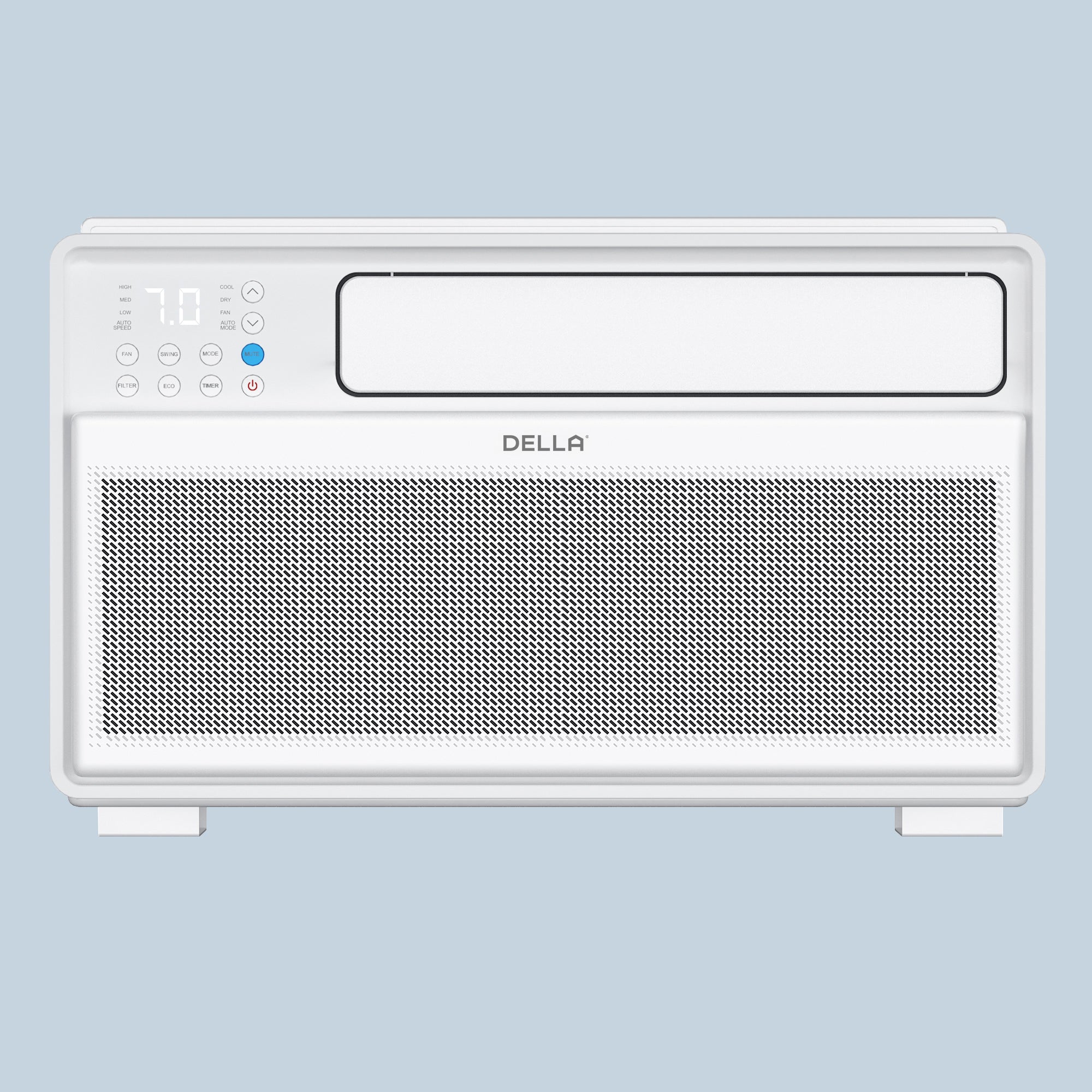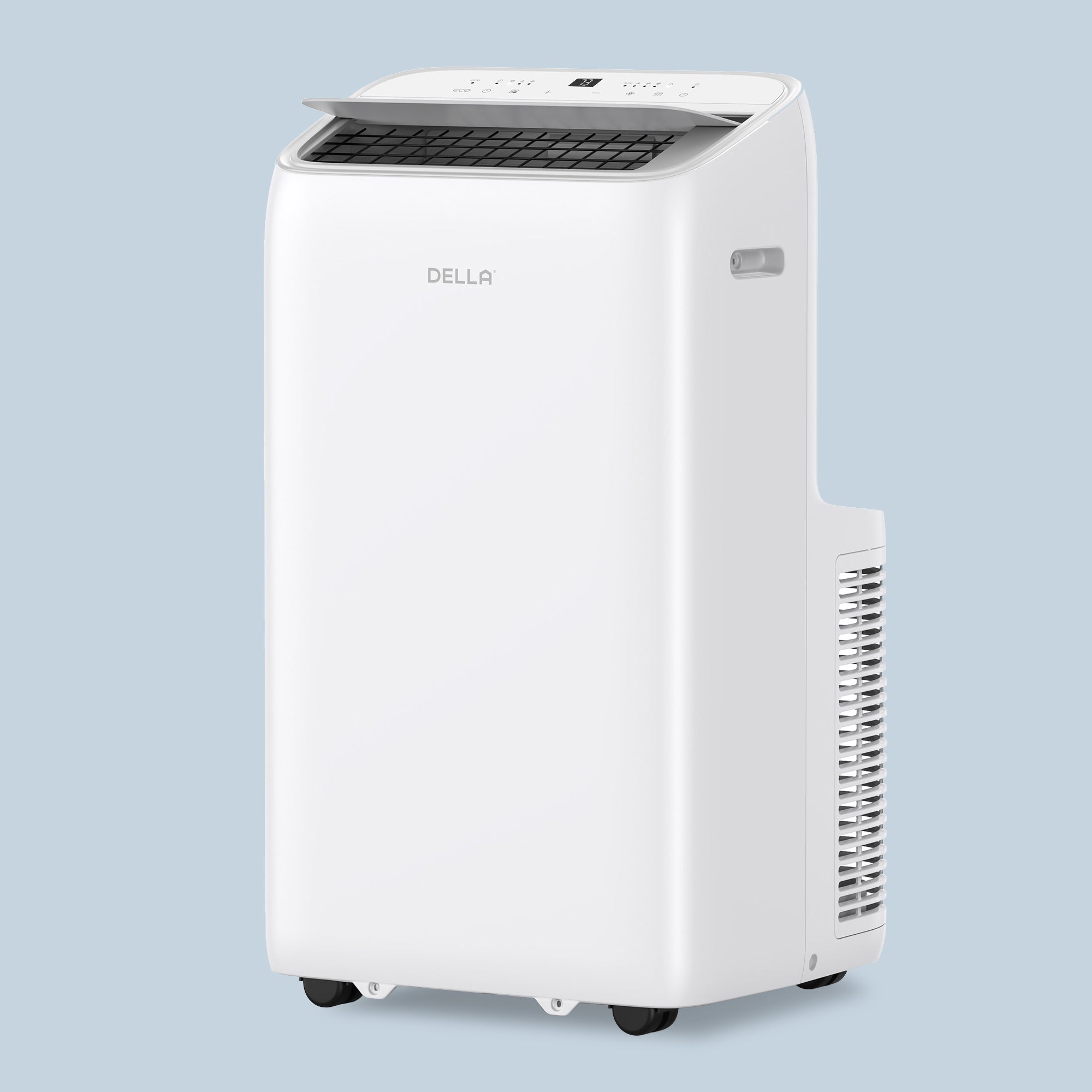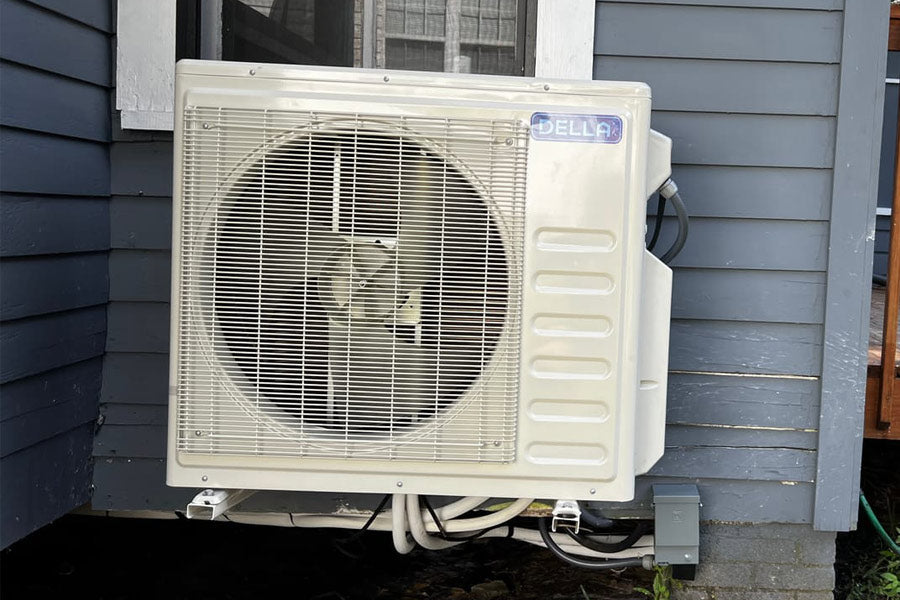If you're looking for an energy-efficient, ductless heating and cooling solution, a mini-split inverter heat pump is an option worth considering. It's especially useful in spaces without a central air conditioning system, such as renovated older homes, converted basements, or home offices.
In the following content, we'll introduce the basic principles of mini-split inverter heat pumps, applicable scenarios, size selection, pros and cons, and provide a concise buying guide to help you decide if this system is right for your space.
What is Inverter Technology in Mini-Split Systems?

Inverter technology enables mini-split heat pumps to run at varying speeds rather than turning on and off like regular units.
This results in precise temperature control, lesser energy waste, lasting comfort, and an extended lifespan. The technology uses a variable-speed compressor and an inverter drive to adjust power output.
How Inverter Technology Works
In mini-split heat pumps, inverter technology enables the compressor to operate at various speeds, eliminating the on-off cycling seen in conventional systems. Traditional systems work at full power until reaching the desired temperature.
Once they hit that mark, the system shuts off. This constant on-off cycling leads to huge spikes in energy use. An inverter mini-split cools or heats to the desired temperature and then maintains it.
Components of Inverter Mini Splits
Key components consist of a variable-speed compressor, an inverter drive, and a refrigerant system.
The inverter drive takes AC power and converts it to DC and then back to AC power at the required frequency so that it can control the required inverter motor speed followership. This wear and tear means lesser system efficiency.
Benefits of Inverter-Driven Systems
Since inverter mini-splits change energy flow instead of stopping and starting, they use less energy. Mini-splits maintain stable temperatures, remove cold or hot sections, and run quietly.
A number of models have good SEER (Seasonal Energy Efficiency Ratio) and HSPF (Heating Seasonal Performance Factor) ratings to save you money. For those considering a complete home solution, a ductless mini split heat pump system might be worth exploring.
What is the difference between a mini split and a mini split inverter?

Mini splits and mini split inverters differ in their compressor operation control method. Regular units activate at their highest power and turn off, but the inverter models continuously adjust the speed for better working efficiency and comfort.
This key distinction affects energy use, noise levels, and performance.
Operation Mechanism
A regular mini-split has a compressor that runs at full power until the thermostat setting is met and then shuts off.
This consistent on-and-off cycle uses more energy and creates temperature swings. An inverter mini-split will vary its compressor speed so it doesn’t waste as much energy.
Energy Efficiency Comparison
Mini-splits with inverter technology are much more efficient. For example, the TOSOT 12,000 BTU mini-split has a 20 SEER2 rating. As a result, it uses a lot less electricity than a non-inverter model. Some even have SEER ratings as low as 10; that can get very costly.
Noise Levels and Comfort
Because the compressor is cycling on and off frequently, non-inverter systems make more noise. Most inverter-driven mini splits, like the Bosch Climate 5000, work as low as 23 dB indoors, making them ideal for bedrooms and offices.
The steady flow of air also enhances comfort by eliminating sudden temperature fluctuations.
Pros and Cons of Mini Split Inverter Heat Pump

Inverter mini splits have many advantages, including energy savings and less noise. However, they also have a higher price tag. After weighing these pros and cons, homeowners can decide if the technology is right for them.
Advantages of Inverter Mini Splits
● Inverter mini splits don’t constantly turn off and on, so they use 30-50% less energy than standard mini split systems.
● The compressor won’t make much noise; that is, some of the models operate below 30 dB.
● A system lifespan is a lot longer as Mechanical stress is lower
● A more stable temperature helps not rely heavily on the heating and cooling system when using your Air conditioning unit.
Disadvantages of Inverter Mini Splits
● Inverter models initially cost more, but savings on energy bills offset this cost over time.
● Challenging Fixes – High-tech components may need expert help for repairs.
● Some cheaper models may not correct the power factor properly. So its efficiency will be compromised.
Are Inverter Mini Splits Worth It?
An inverter mini split’s worth depends on several factors, including climate, energy prices, and long-term savings. While you may pay more upfront for one, over time, the efficiency and comfort benefits will justify the cost.
Cost vs. Long-Term Savings
Though the initial investment to buy inverter mini splits is higher but saves a lot. For instance, cooling expenses are reduced by 50% when using a 20 SEER2 unit rather than a 10 SEER unit. The lower electricity bills usually justify the cost over 5-10 years.
Climate Suitability
Today’s inverter heat pumps, like those from Senville, can work well even in extremely cold weather and heat down to -22°F. They are also good options for heating furnaces in cooler regions.
Installation and Rebates
Officials offer rebates for high-efficiency mini split inverter systems. In addition, the ductless design makes installation easier, especially in homes without ductwork. During air conditioning promotions, you may find good options that include these mini split HVAC.
Conclusion
Mini split inverter heat pump is a zone control flexible, dual-purpose cooling and heating, easy to install and suitable for spaces without traditional central air conditioning systems. It has become a common choice for many residential and commercial users.
Ready to upgrade your home comfort? Browse Della Home's carefully crafted mini split air conditioners, designed with ductless mini split heat pump inverters and dehumidification systems.
Whether it is a renovation project or a new space layout, Della Home is your safe choice. Visit Della Home now and prepare for your hot summer!
FAQs
What is the difference between a heat pump and an inverter heat pump?
The variable frequency heat pump heats or cools in real time, and it will maintain the temperature required by the human body more continuously. It is quieter than a heat pump and saves more electricity. A heat pump makes a lot of noise, and the air temperature it produces can make you feel hot and cold.
Read More:
What is a Portable Air Conditioner? Here's All You Need
Cost to Install Mini Split AC System in 2025
How Much Does It Cost to Install a Mini Split Unit in Garage?








LEAVE A COMMENT
All comments are moderated before being published.
This site is protected by hCaptcha and the hCaptcha Privacy Policy and Terms of Service apply.